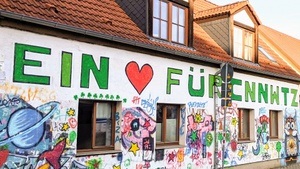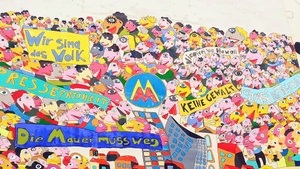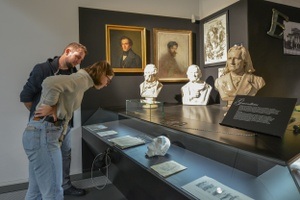Die 90er in Leipzig. Zwischen Aufbruch und Abwicklung
In the organizer's words:
Today, the 1990s are also considered the founding period of our present day in Leipzig. Our current social and economic conditions and political structures in the West were established in the East after reunification, and everyday life changed. From the fall of the GDR, Leipzigers brought with them a wide variety of life experiences, injuries as well as previously unfulfilled longings and visions. Leipzig's great self-confidence in its own creative power and economic potential, infrastructure or culture and sport was evident in these years - after all, Leipzig saw (and still sees) itself as the "hero city" of the revolutionary autumn of 1989, with a history rich in successes. The founding of companies, clubs and associations of all kinds and cultural institutions developed from these aspirations and are still part of the city's special profile today.
Alongside the opportunities of freedom, there were great disappointments and an unexpected decline: a large proportion of those working in industry and administration became unemployed and had to reorient themselves. Many moved away. How the privatizations took place and what could have been done better is still controversial today. Despite many attempts and investments, the politically desired "reconstruction of the East" succeeded much more slowly and often differently than planned. It only got the economy moving and people into work after 2000, but also sparked new debates about justice and participation. Around 15 years passed before an upturn in the labor market, population or tax revenue became noticeable or the environmental legacy disappeared. And yet, these crises and a determined approach ultimately made Leipzig more attractive and able to connect on a national, even international level.What remains to be discussed is what is effective and remembered today from this period of upheaval.
This content has been machine translated.













